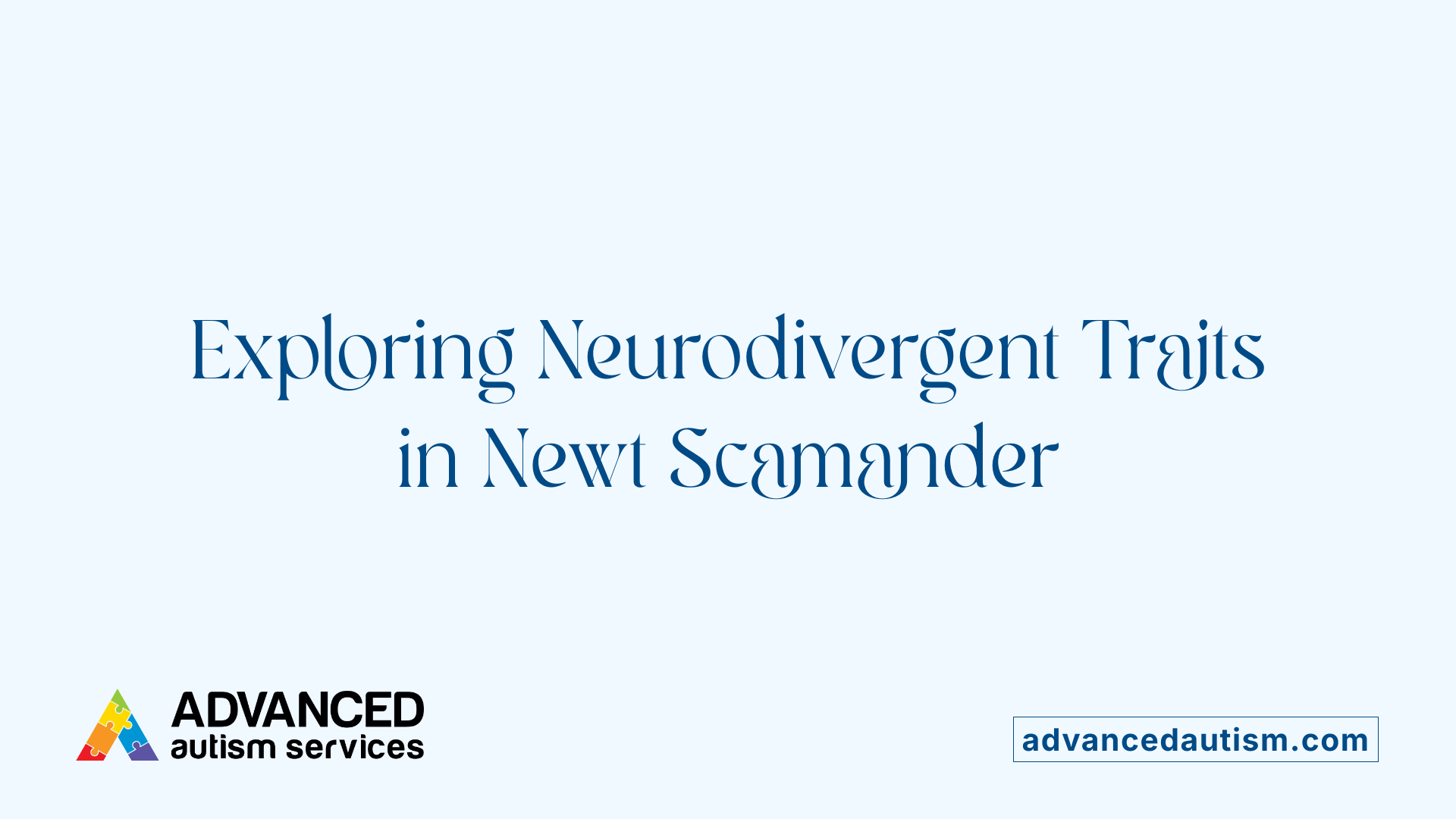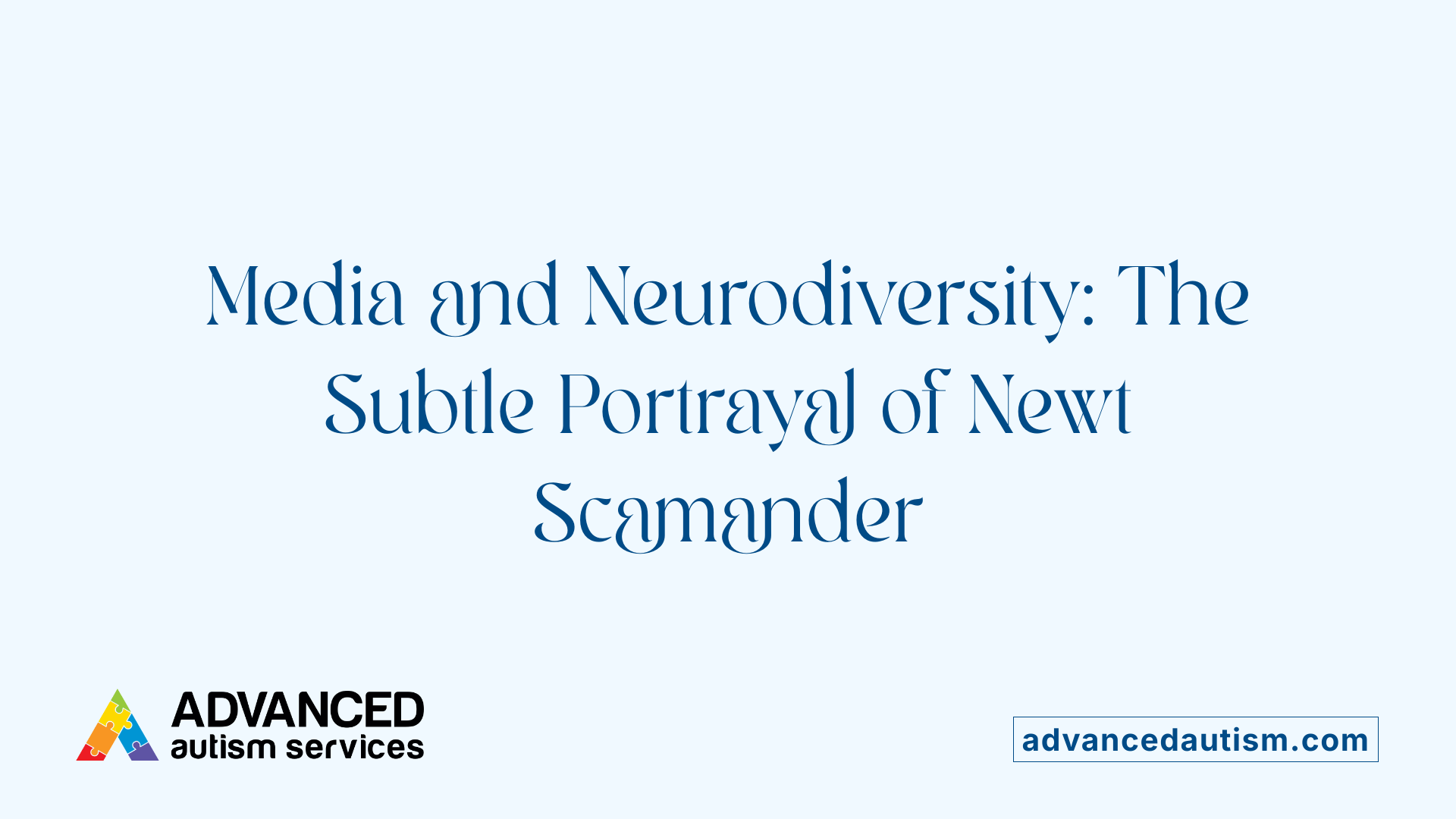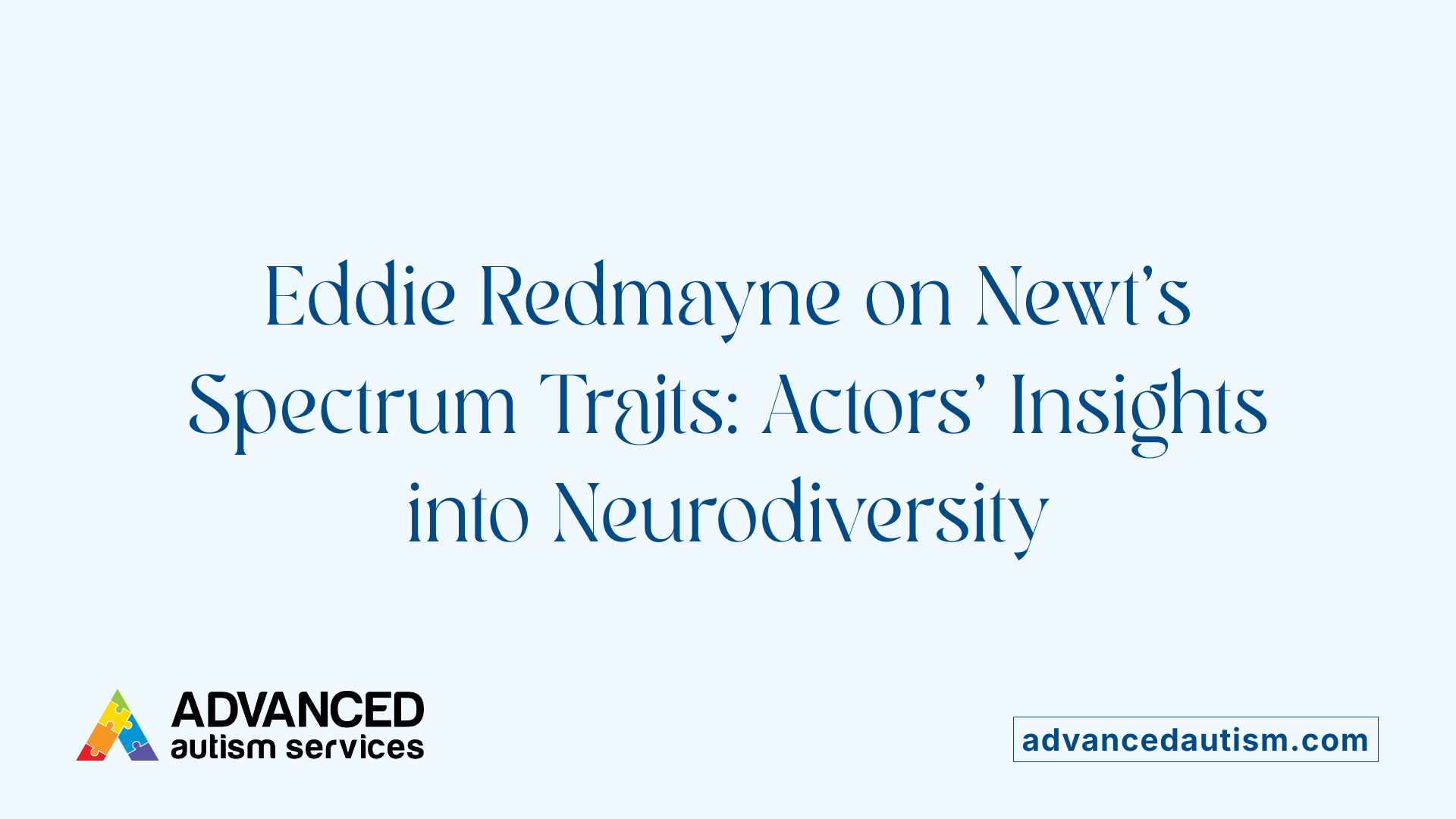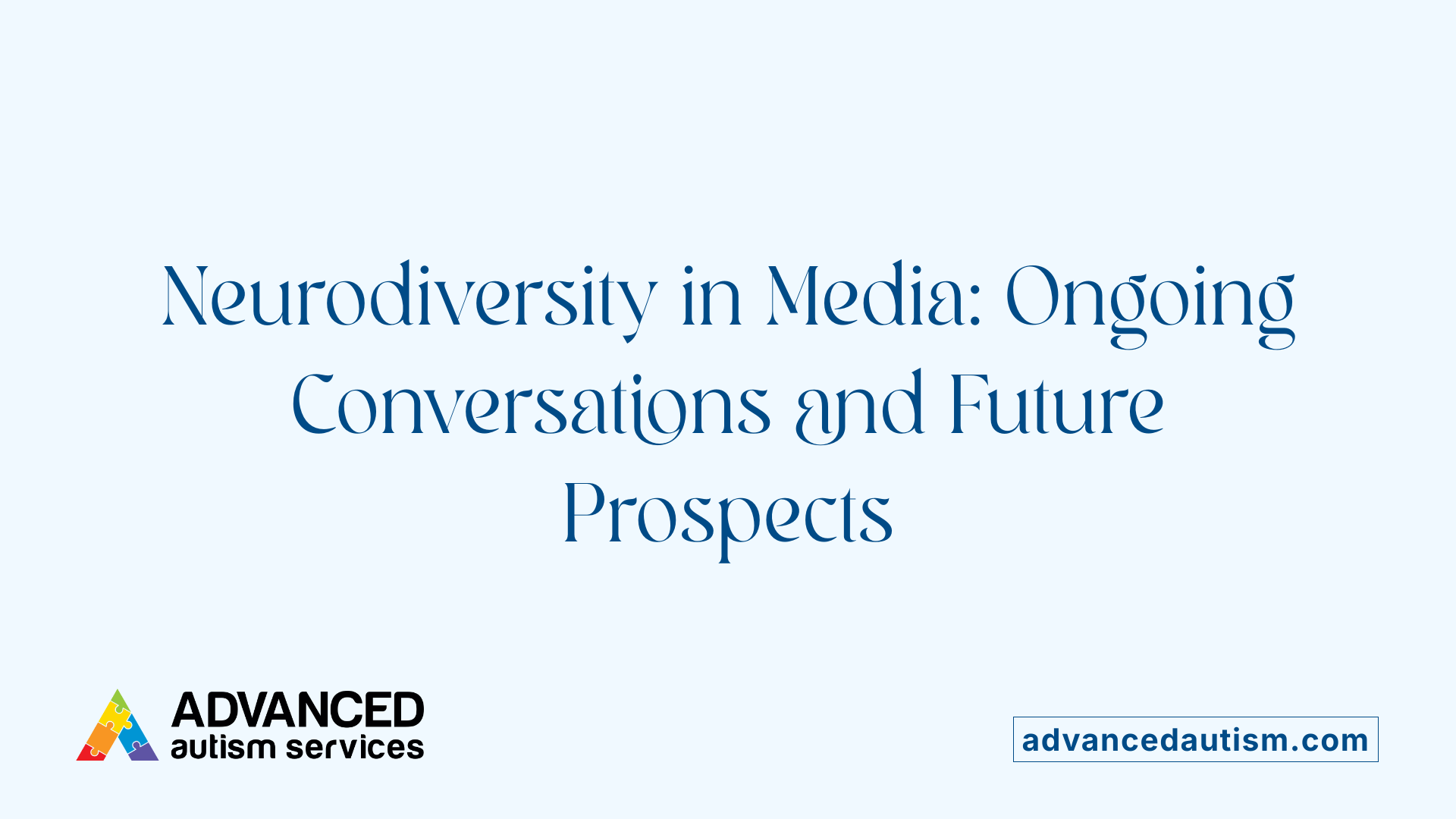Exploring Autism Through a Magical Lens
The character of Newt Scamander from the 'Fantastic Beasts' series has captivated fans with his unique personality and behaviors. Many wonder whether these traits suggest that he might be on the autism spectrum. This article delves into the character’s traits, the actor’s insights, and the broader implications of neurodivergent representation in media, aiming to understand whether Newt Scamander’s behaviors reflect autism.
Traits and Behaviors of Newt Scamander That Suggest Neurodivergence

What traits or behaviors of Newt Scamander suggest he might be neurodivergent?
Many fans and analysts see Newt Scamander as a reflection of neurodivergent traits, particularly those associated with being on the autism spectrum. Based on observable behaviors in the films and books, several traits stand out that support this interpretation.
First, Newt often exhibits social difficulties. He is notably shy, avoids eye contact, and can seem socially awkward when interacting with others. These behaviors are common among autistic individuals, who may find social interactions overwhelming or challenging. Despite these difficulties, Newt remains attentive and engaged, especially when it comes to his work with magical creatures.
His intense focus and deep fascination with magical beasts are also telling. Newt devotes his life to understanding and caring for these creatures, displaying a level of obsession and specialization in his interests that aligns with neurodivergent patterns. He demonstrates a scientific curiosity, knowing extensive details about the creatures he studies and showing dedication that seems driven by passion.
Additionally, Newt's preference for solitude and unconventional ways of interaction further support this view. He often prefers to stay solitary, spending long hours with animals or lost in thought, rather than engaging in typical social activities. His behaviors—including avoiding physical touch and unusual mannerisms—are consistent with sensory sensitivities reported by many autistic individuals.
While these traits suggest that Newt Scamander might be autistic or neurodivergent, it is important to remember that they are based on interpretation rather than official diagnosis. The character's portrayal reflects complex personality traits and behaviors that many find resonate with neurodivergent experiences. Rowling herself has noted that Newt's personality includes traits associated with being on the spectrum, a perspective echoed by actor Eddie Redmayne, who believes his character exhibits signs of Asperger’s.
Ultimately, Newt's representation provides a nuanced depiction of a character who thrives despite social challenges, highlighting the diversity of personality types within the wizarding world. His deep bond with magical creatures and unique way of viewing the world make him an engaging, multidimensional figure that resonates with many fans.
The Portrayal of Newt Scamander and Its Reflection on Media Representation

Does the depiction of Newt Scamander reflect a broader representation of neurodivergent individuals in media?
Many fans and viewers have noticed traits in Newt Scamander, the protagonist of the Fantastic Beasts film series, that align with characteristics associated with autism, such as social awkwardness, avoidance of eye contact, intense focus on specific interests, and a preference for the company of animals over humans. Actor Eddie Redmayne, who portrays Newt, has publicly expressed his belief that the character displays traits consistent with being on the Asperger’s spectrum.
However, it is important to note that the creators of the character, including J.K. Rowling, have not officially confirmed Newt’s neurodiversity. This leaves his portrayal open to interpretation, serving as an example of how media often depict neurodivergence through coded traits rather than explicit representation. In many cases, fictional characters exhibiting such behaviors are not officially labeled as neurodivergent, which can lead to misunderstandings about what neurodiversity entails.
This approach in media aligns with a broader trend where neurodivergent traits are portrayed subtly, often relying on stereotypes or ambiguous behaviors. While such portrayals can raise awareness, they risk oversimplifying or misrepresenting the complexities of neurodivergent experiences. For example, traits like routines, hypersensitivity, or echolalia can be included but may also be misused or exaggerated if not handled with care.
Authentic representation requires nuanced characters that portray the full spectrum of neurodivergence without relying on clichés. It involves including elements such as sensory sensitivities, varied communication styles, and individual personality differences. When done thoughtfully, fiction can foster understanding and acceptance by depicting neurodivergent characters as complex and multidimensional.
In the context of the Harry Potter universe, the absence of explicitly disabled or neurodivergent characters reflects a broader gap in media representation. Many fans see Newt as a positive step toward visibility, but it also emphasizes the need for more direct and respectful portrayals of neurodiversity.
Overall, Newt Scamander’s depiction contributes to ongoing discussions about how media portrays neurodivergence. It highlights the importance of intentional storytelling that respects authenticity and diversity, moving beyond stereotypes to include characters who embody a broad range of human experiences.
| Trait or Behavior | Common Association | Additional Context |
|---|---|---|
| Avoidance of eye contact | Autistic traits | Indicative of discomfort or social anxiety |
| Preference for animals | Autistic traits | Deep understanding and empathy for creatures |
| Social awkwardness | Autistic traits | Challenges in social interaction |
| Eccentric interests | Autistic traits | Passionate focus on specific subjects |
| Cautiousness and avoidance of touch | Autistic traits | Sensory sensitivities and personal boundaries |
| Reliance on friends for social cues | Autistic traits | Social support mechanisms |
This table summarizes some behaviors observed in Newt Scamander that fans interpret as aligning with autism spectrum traits, illustrating the nuanced ways in which media characters can reflect neurodivergent experiences without explicit labels.
Eddie Redmayne’s Perspective on Newt’s Autism Spectrum Traits
 Actor Eddie Redmayne has openly shared his thoughts on the character of Newt Scamander from the 'Fantastic Beasts' series, suggesting that the wizard exhibits traits aligned with the autism spectrum. Redmayne believes that Newt's mannerisms, behaviors, and personality traits hint at being on the Asperger’s spectrum, a condition characterized often by difficulties in social interaction and focused interests.
Actor Eddie Redmayne has openly shared his thoughts on the character of Newt Scamander from the 'Fantastic Beasts' series, suggesting that the wizard exhibits traits aligned with the autism spectrum. Redmayne believes that Newt's mannerisms, behaviors, and personality traits hint at being on the Asperger’s spectrum, a condition characterized often by difficulties in social interaction and focused interests.
Redmayne points to specific traits that support this view. For example, Newt often avoids making eye contact when speaking, a behavior that can be associated with autism. He also describes Newt as having a particular walking style and gaze that reflect characteristics seen in individuals with Asperger’s. These mannerisms, combined with Newt's social interactions, or lack thereof, and his cautious approach to physical touch, contribute to Redmayne's interpretation.
He notes that his portrayal draws from the original descriptions by J.K. Rowling, who depicted Newt as socially awkward and introverted around humans but deeply connected to his magical creatures. Rowling has mentioned that Newt's personality reflects traits that are consistent with being on the autism spectrum, though she did not explicitly define him as autistic.
In discussing this, Redmayne emphasizes that his view is his interpretation rather than an official diagnosis. While he recognizes that these traits align with autism, he clarifies that the character has not been formally diagnosed in the context of clinical criteria. Redmayne’s portrayal and his interpretation serve to provide a positive representation of neurodiversity, highlighting that such traits can coexist with remarkable expertise and sensitivity.
Furthermore, these attributes—shyness, social cautiousness, and intense interest—are sometimes misinterpreted when viewed outside their full context. While Newt’s traits can resemble autism, they might also stem from personality or individual differences. Nonetheless, Redmayne's perspective has sparked conversations about the importance of representation and understanding of neurodiverse characters in popular culture.
This discussion also ties into broader conversations about the lack of explicitly disabled or neurodivergent characters in the Harry Potter universe and the implications of 'fixing' disabilities with magic, which raises ethical questions about authenticity and representation.
Overall, both the actor and the author have contributed to a nuanced perspective: Newt as a character who embodies traits associated with autism, presented in a way that promotes empathy, acceptance, and awareness.
| Aspect | Description | Additional Notes |
|---|---|---|
| Actor’s view | Believes Newt is on the autism spectrum, particularly Asperger’s | Based on behavioral traits like eye contact and mannerisms |
| Traits observed | Avoids eye contact, cautious around physical touch, deep bond with animals | Traits aligning with autism are all portrayed in Redmayne's performance |
| Rowling’s remarks | Described Newt as socially awkward, introverted, eccentric | Traits reflect characteristics associated with autism |
| Differentiation | Traits are interpretative, not an official diagnosis | Emphasizes the importance of understanding and representation |
| Broader context | Raises questions about neurodiversity and magic in fiction | Highlights issues around representation and stereotypes |
| Question | Answer | Additional Comments |
|---|---|---|
| How has the actor Eddie Redmayne or the creators of 'Fantastic Beasts' discussed Newt Scamander's character in relation to autism? | Eddie Redmayne has publicly stated that he believes Newt Scamander is on the autism spectrum, specifically suggesting he may be on the Asperger’s spectrum. Redmayne explained that certain behaviors and mannerisms of Newt, such as his walking style, gaze, and difficulty with eye contact, contribute to this interpretation. He also mentioned that when J.K. Rowling first described the character, these traits were present but not explicitly linked to autism, as the diagnosis was not well understood at the time. The article highlights that Redmayne’s portrayal adds a positive representation of a neurodiverse character in popular culture. Overall, both Redmayne and the creators have acknowledged traits consistent with autism but have not explicitly stated that Newt Scamander has autism in a clinical sense. | This perspective fosters inclusion and awareness through popular media without claiming a clinical diagnosis, highlighting the nuances of representation. |
Search query for more info |
Contextualizing Newt Scamander’s Traits Within J.K. Rowling’s Description
J.K. Rowling created Newt Scamander as a deeply detailed character embedded with traits that reflect his introverted nature and love for magical creatures. According to Rowling, Newt is an eccentric and socially awkward wizard who feels most at ease around animals rather than humans. His reserved demeanor, avoidance of eye contact, and gentle cautiousness align with characteristics many associate with neurodivergence, particularly traits found in autism spectrum disorder (ASD).
In the films and books, Newt is often seen avoiding direct interpersonal contact, hesitating to engage in social conversations, and depending on close friends like Jacob to navigate social situations—hallmarks that echo behaviors observed in some autistic individuals. His meticulous work as a magizoologist, dedicated focus on magical creatures, and deep understanding of their behaviors showcase a scientific curiosity that can be linked to traits of intense interest and expertise often associated with neurodivergence.
Eddie Redmayne, the actor portraying Newt, has shared his belief that the character exhibits signs consistent with Asperger’s syndrome, a condition on the autism spectrum. Redmayne points out that Newt’s mannerisms—such as not making eye contact, his walking style, and his reserved, cautious demeanor—mirror traits commonly seen in individuals with Asperger’s. These observations are reinforced by Rowling’s own descriptions, which highlight Newt’s social quirks and comfort around his animals.
While these traits align with behaviors on the autism spectrum, it’s vital to acknowledge that they can also stem from other aspects of personality or experiences, such as self-esteem issues or personal eccentricities. The portrayal of Newt offers a nuanced view that avoids simplified stereotypes, emphasizing his humanity and complexity.
The importance of representing characters like Newt as potentially neurodivergent extends beyond individual interpretation. Such portrayals can foster understanding and acceptance in the broader cultural context. When audiences see characters with diverse cognitive profiles portrayed thoughtfully, it encourages empathy and reduces stigma.
However, it is crucial for media creators to approach such representations with care, avoiding stereotypes that could trivialize or romanticize neurodiversity. Authenticity and complexity in character development help ensure that these portrayals are respectful and meaningful.
Specifically, in the context of the Harry Potter universe, the scarcity of diverse representations, including disabled or neurodivergent characters, raises questions about community visibility and inclusion. There’s concern about whether the use of magic to “fix” disabilities might diminish the lived realities of neurodivergent individuals, essentially implying that differences need to be ‘cured’ instead of accepted.
Ultimately, portraying Newt Scamander with traits that could be associated with autism spectrum disorder contributes to a broader conversation on representation. It underscores the need for nuanced portrayals that celebrate neurodiverse experiences as natural variations of human identity.
To better understand this complex topic, consider the following overview of the traits associated with Newt and their relevance to neurodiversity:
| Trait | Behavior | Possible Interpretation | Additional Notes |
|---|---|---|---|
| Avoidance of eye contact | Often does not look directly at others | Common in autistic individuals | Remains attentive and engaged despite eye contact avoidance |
| Obsession with creatures | Deep passion for magical animals | Intense interests seen in neurodivergence | Demonstrates expert knowledge and deep empathy |
| Social awkwardness | Hesitant in social interactions | Associated with ASD | Often relies on close friends for support |
| Cautiousness | Avoids physical touch, careful around others | Sensory sensitivity or social anxiety | Behavior observed in some neurodivergent individuals |
| Bond with animals | Deep understanding of and bond with animals | Empathy and communication skills | Highlights alternative ways of connection |
| Scientific curiosity | Dedication to magical research | Traits of focus, curiosity, and innovation | Seen in many scientists, neurodivergent included |
Understanding such traits in context illustrates how fictional characters can mirror real neurodiverse individuals' experiences. The portrayal of Newt Scamander encourages a more inclusive perspective that values neurodiversity as part of the human spectrum, fostering empathy and reducing stereotypes.
Conclusion: The Ongoing Conversation Around Neurodivergence in Media

Is Newt Scamander portrayed as having autism or related conditions in the 'Fantastic Beasts' series?
There is no official confirmation that Newt Scamander has autism or any related conditions within the 'Fantastic Beasts' series or the original Harry Potter universe. Fans and observers often interpret his behaviors—such as avoiding eye contact, shyness, eccentric interests, and deep empathy for magical creatures—as potentially indicative of autism spectrum traits. These traits include social awkwardness, sensory sensitivities, and intense focus on specific subjects.
However, it is important to distinguish between interpretation and official canon. J. K. Rowling has not explicitly described Newt as neurodivergent, and the creators have not officially labeled his character with any diagnostic identity. Traits that fans associate with autism can also be explained by personality characteristics, introversion, or self-esteem issues. For instance, Newt's preference for animals over social interactions might reflect personality preferences or his cautious nature rather than a neurodivergent condition.
Eddie Redmayne, the actor who portrays Newt, has shared his personal perspective that the character might be on the Asperger’s spectrum. According to Redmayne, Newt's shyness, reserved postures, avoidance of eye contact, and unique mannerisms align with traits often associated with Asperger’s. Redmayne’s interpretation adds an interesting layer of depth, but it remains an actor's personal insight rather than an official portrayal.
The broader conversation about neurodivergence in media highlights how representation—both accurate and respectful—is still evolving. While some media aim to include characters with diverse neurotypes to foster understanding and visibility, others risk reducing complex individuals to stereotypes unless careful care is taken.
The importance of accurate representation
Accurate portrayals of neurodivergent characters can increase awareness and empathy. When characters like Newt are depicted with depth and nuance, it helps normalize neurodiversity. However, inaccuracies or stereotypes can reinforce misconceptions or stigmatize those who identify as neurodiverse.
The distinction between headcanon and canon
Fans often develop headcanons—personal interpretations that expand on the traits shown in the source material. While these can enrich the fandom experience, they are not official and should be recognized as separate from canon. The interpretation of Newt's traits as indicative of autism remains a headcanon unless confirmed by Rowling or the creators.
The impact of actor and creator insights
Insights from actors like Eddie Redmayne and commentary from creators such as J. K. Rowling influence how fans view characters. Redmayne’s comments have sparked discussions about neurodiversity, but they reflect personal interpretations rather than official confirmation. These insights can shape fandom discourse and encourage more inclusive portrayals.
Future directions for portrayal
Media creators are increasingly aware of the importance of representing neurodiversity authentically. Future portrayals may include characters explicitly identified as neurodivergent, with nuanced development and respect for their experiences. Such directions can foster understanding and create more inclusive narratives.
| Aspect | Description | Notes |
|---|---|---|
| Official Confirmation | No | No canonical statement confirms Newt’s neurodivergence |
| Fan Interpretation | Possible | Traits like social withdrawal are linked to autism by fans |
| Actor Perspective | Suggestive | Eddie Redmayne suggests Newt could be on the spectrum |
| Representation Importance | High | Authentic and respectful portrayals benefit awareness |
| Potential Risks | Stereotypes | Simplistic or inaccurate depictions can be harmful |
Overall, the discussion about Newt Scamander’s traits encapsulates broader issues in media representation of neurodivergent individuals. As understanding grows, future narratives might offer richer, more accurate perspectives that honor the diversity of human experience.
Envisioning More Inclusive Future Narratives
The discussion surrounding Newt Scamander's traits underscores the significance of thoughtful and nuanced representation of neurodivergent characters in media. While interpretations vary and official confirmation remains absent, the character’s traits offer an opportunity to reflect on how media can portray neurodiversity authentically and respectfully, fostering understanding and acceptance. As conversations continue, both creators and audiences hold the power to shape a future where diversity in neurological makeup is embraced, celebrated, and accurately depicted.
References
- In Brightest Day: Newt Scamander and Autism
- Why I'm Convinced Now More Than Ever That Newt Is Autistic
- Newt Scamander - Wikipedia
- Eddie Redmayne thinks Newt Scamander is on the autism spectrum
- Eddie Redmayne says he believes his character Newt Scamander is ...
- Eddie Redmayne Says Newt Is a Hero with Autism - MuggleNet
- Why I'm Convinced Now More Than Ever That Newt Is Autistic
- Eddie Redmayne says he believes his character Newt Scamander is ...
- In Brightest Day: Newt Scamander and Autism
- How authentic is neurodivergent media representation?



